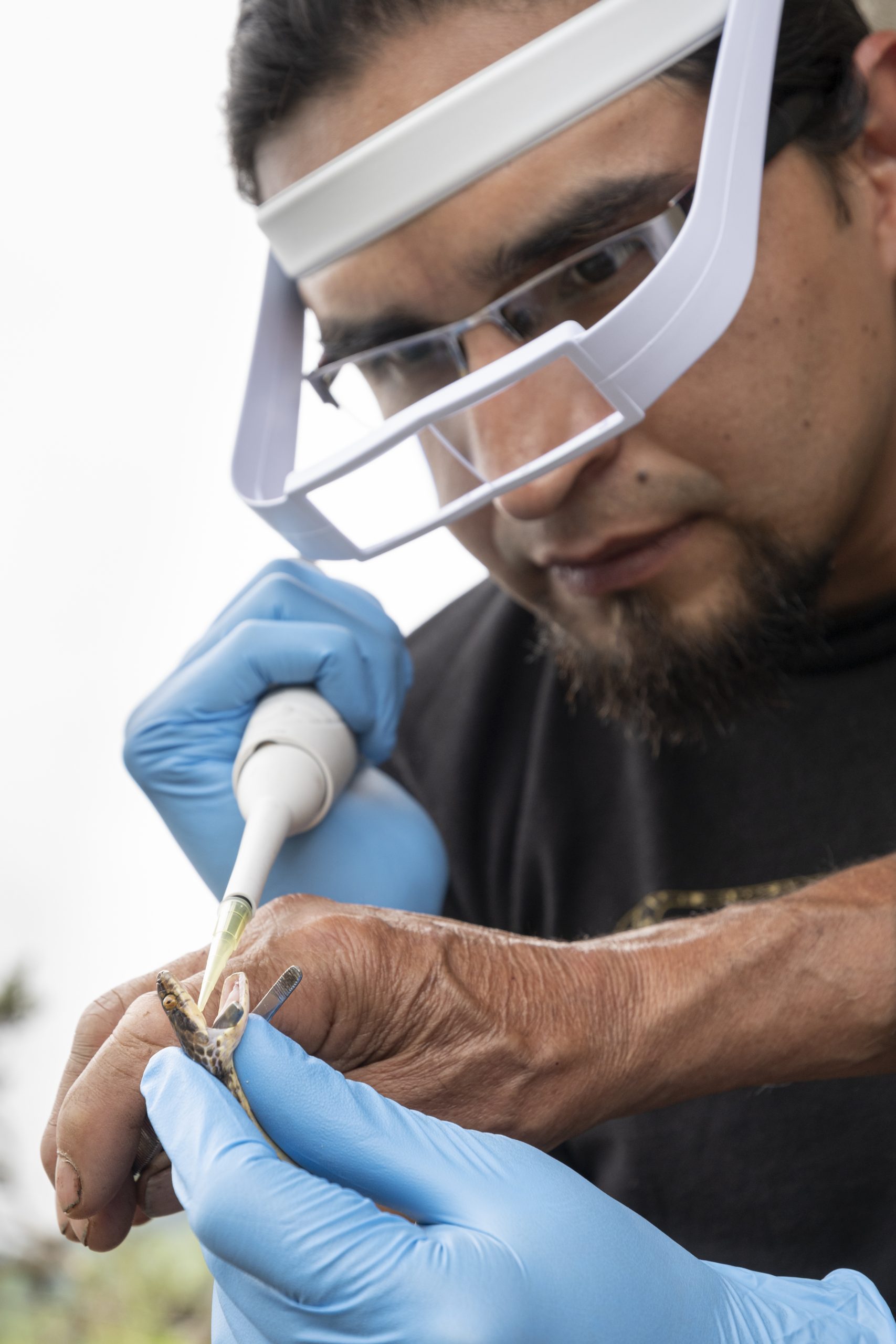
David Salazar-Valenzuela
Principal investigator
I got a bachelor's degree in Biological Sciences from Pontificia Universidad Católica del Ecuador and a Ph.D. from the Department of Evolution, Ecology, and Organismal Biology at The Ohio State University, United States. Currently, I am a professor at Universidad Indoamérica and a Consultant on venomous snakes and toxinology for the National Institute of Public Health Research (INSPI) in Ecuador. I am also a member of the Snakebite Envenoming Technical Advisory Group of the World Health Organization and a co-editor of the Encyclopedia of Reptiles of Ecuador (ReptiliaWebEcuador). My main academic interests are centered on the evolutionary ecology of neotropical toxic animals, systematics, biogeography, venomics, toxinology, human envenoming, community science, and science communication.
RESEARCH ASSISTANTS
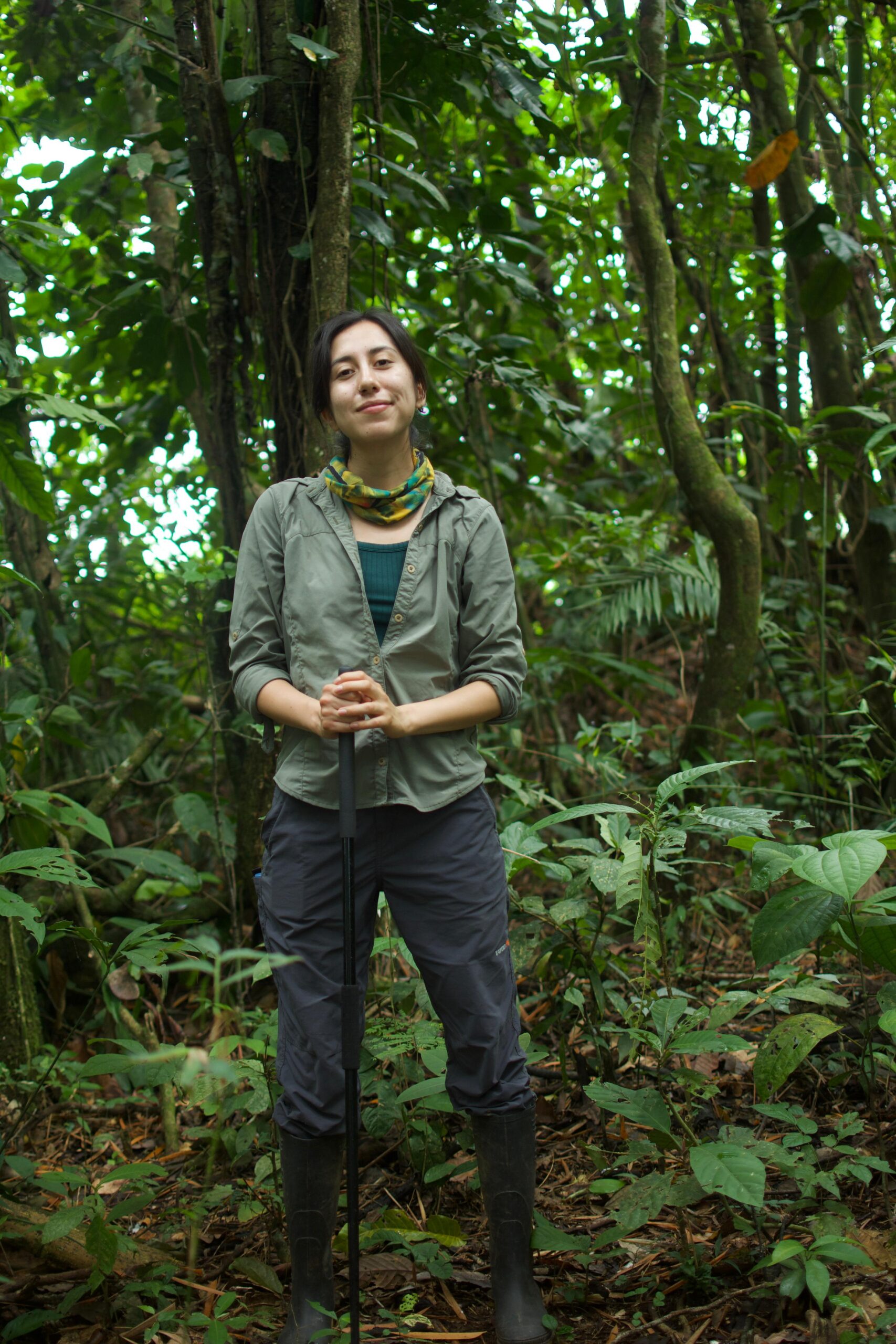
Amalia Espinoza-Regalado
Lab Manager
Amalia graduated in 2021 from Universidad Central del Ecuador with a Bachelor's in Biological and Environmental Science, she worked with the diet and ecology of cat-eyed snakes from southwest Ecuador. She obtained her M.Sc. degree in Computational Biology from Pontificia Universidad Católica del Ecuador in 2024. Her research interests include the study of venoms from scorpions, spiders, and snakes, their relevance to public health issues, predator-prey interactions, and the evolutionary relationships within these groups. She is currently working on the genetics of venomous arachnids that inhabit caves.
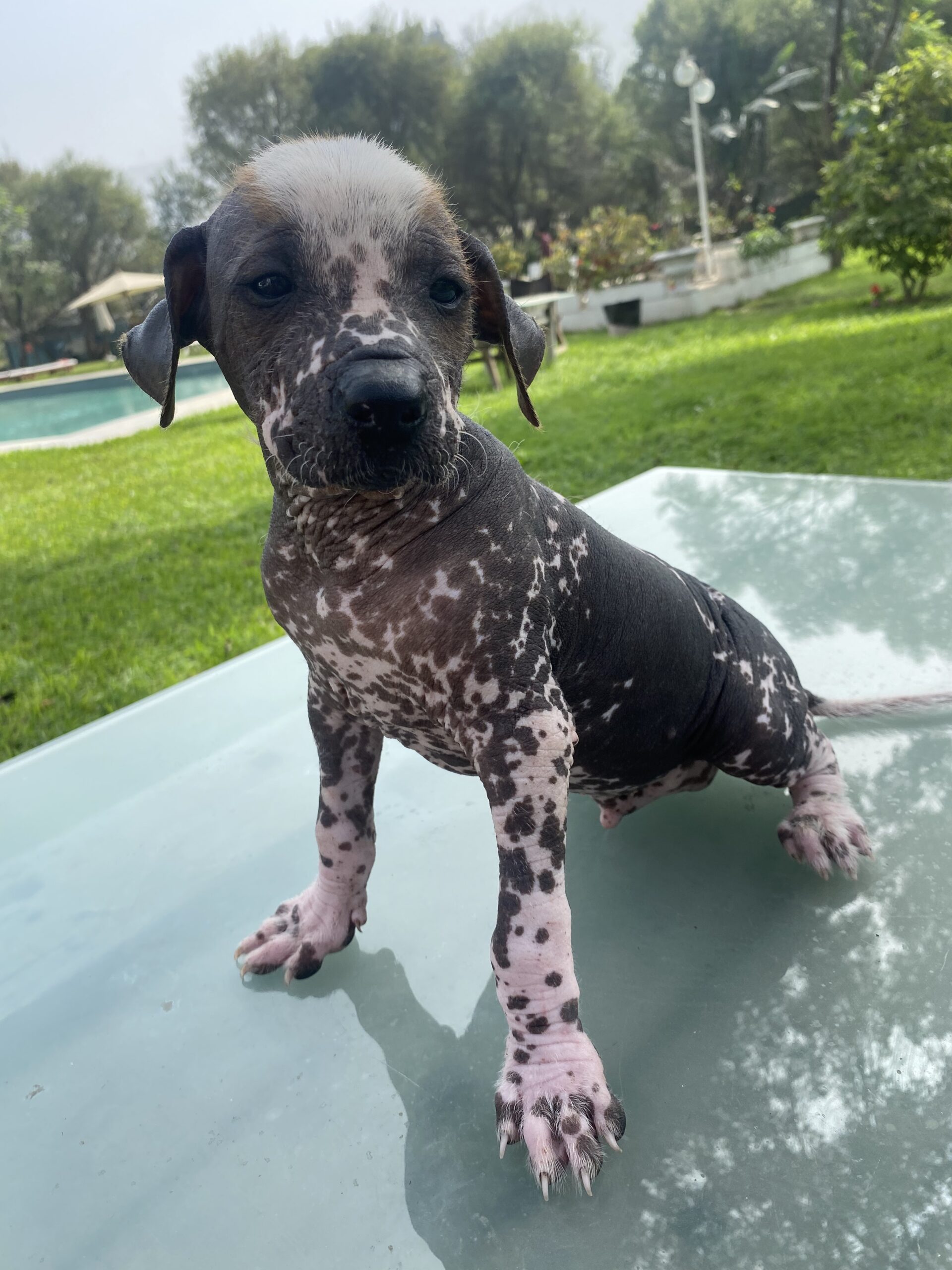
Judas
Work-life balance assistant
Judas (aka Juditas) joined the lab in 2024. He is an odd mix between a stray dog and a Peruvian hairless dog. Currently, his main interests include discovering nearby parks, Ecuadorian food and the smell of snakes. You can follow his updates on the Instagram link above!
UNDERGRADUATE STUDENTS
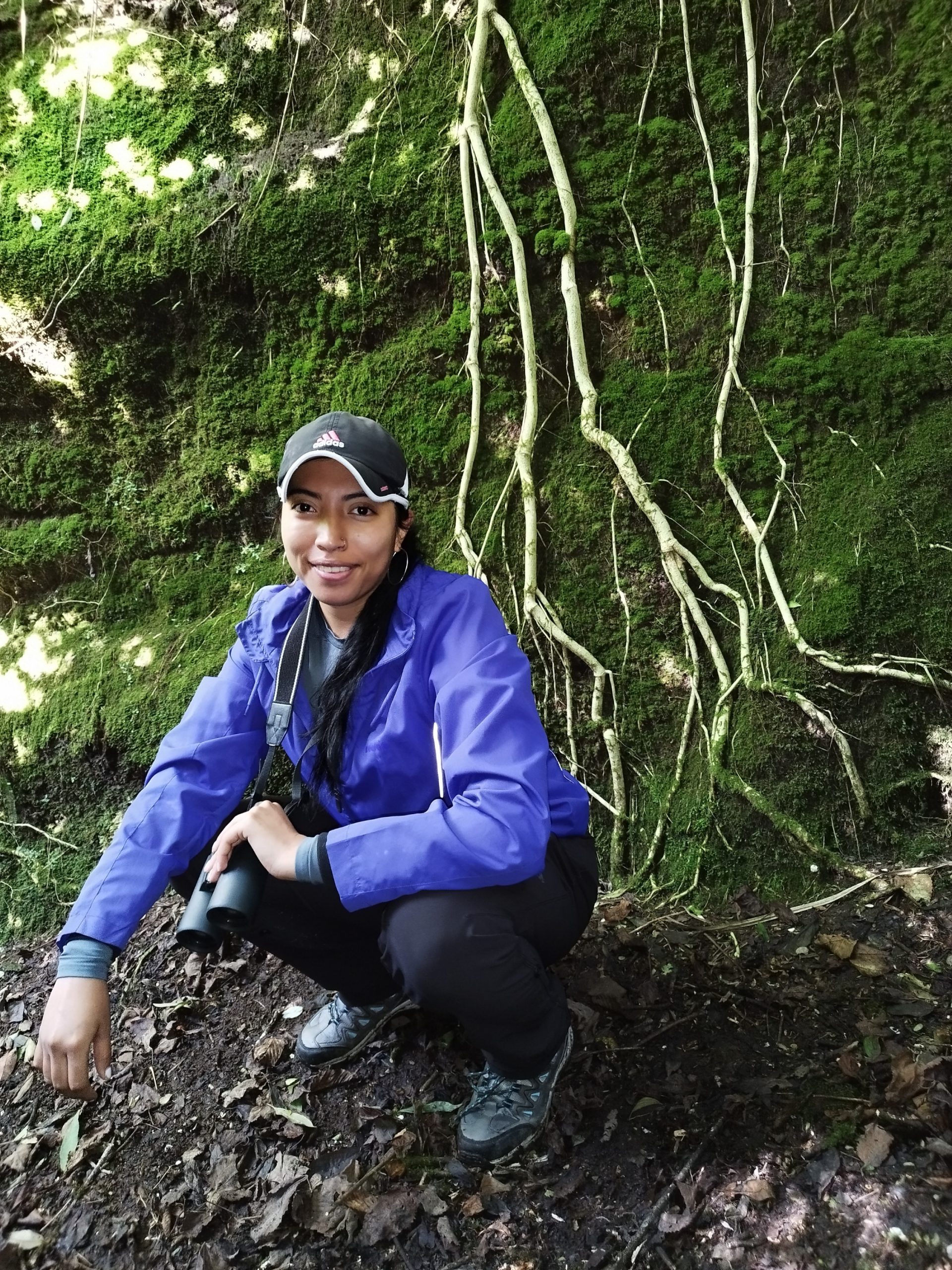
Doménica Leiva
Biodiversity and Genetic Resources
Doménica is a final semester student of the Biodiversity and Genetic Resources engineering career at Universidad Indoamérica. She is interested in learning more about the evolution of snake toxins and the biodiversity of Ecuador. She has participated in projects at the Centre for Biodiversity and Climate Change Research as a field assistant. Her engineering degree thesis focuses on the evolution and ecology of species that live in urban areas in Latin America.

Marco Rivera
Biodiversity and Genetic Resources
Marco is a fourth-year student in engineering in biodiversity and genetic resources at Universidad Indoamérica. He is interested in learning about the structure and modes of use of terrestrial venomous animals of the Galapagos Islands in Ecuador and is currently doing his thesis based on the above. On campus, he is a maintenance assistant at the museum in the Herpetology section. His hobbies include playing the guitar, riding a longboard, and adventurous traveling.

Andrea Zambonino
Biodiversity and Genetic Resources
Andrea Zambonino is a fourth-year student in engineering in biodiversity and genetic resources at Universidad Indoamérica. She is interested in learning about animal venom to determine how its composition acts in the human body, such as in scorpions, which despite generating a series of reactions in the nervous system also has the potential for the development of medicines. On campus, she is a maintenance assistant at the museum in the Herpetology section. Her hobbies include reading books, exercising, and discovering new places.
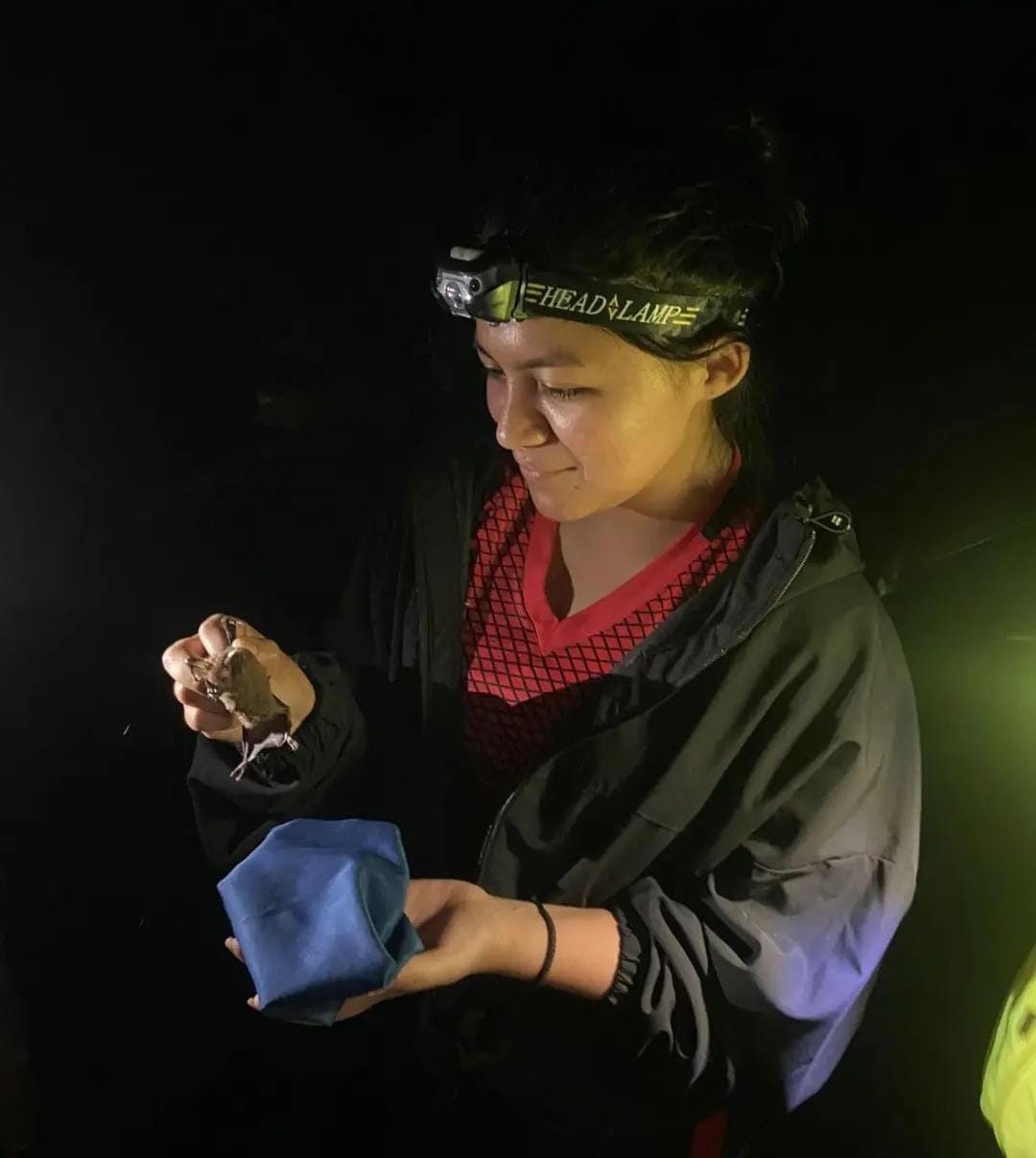
Karen Marcalla
Biodiversity and Genetic Resources
Karen is a Biodiversity and Genetic Resources Engineering student at Universidad Indoamérica. She is interested in learning about the diversity of snake species found around her hometown (Pedro Vicente Maldonado) in the Ecuadorian Andean-Choco. One of her hobbies is participating in field trips.
PREVIOUS STUDENTS AND COLLABORATORS
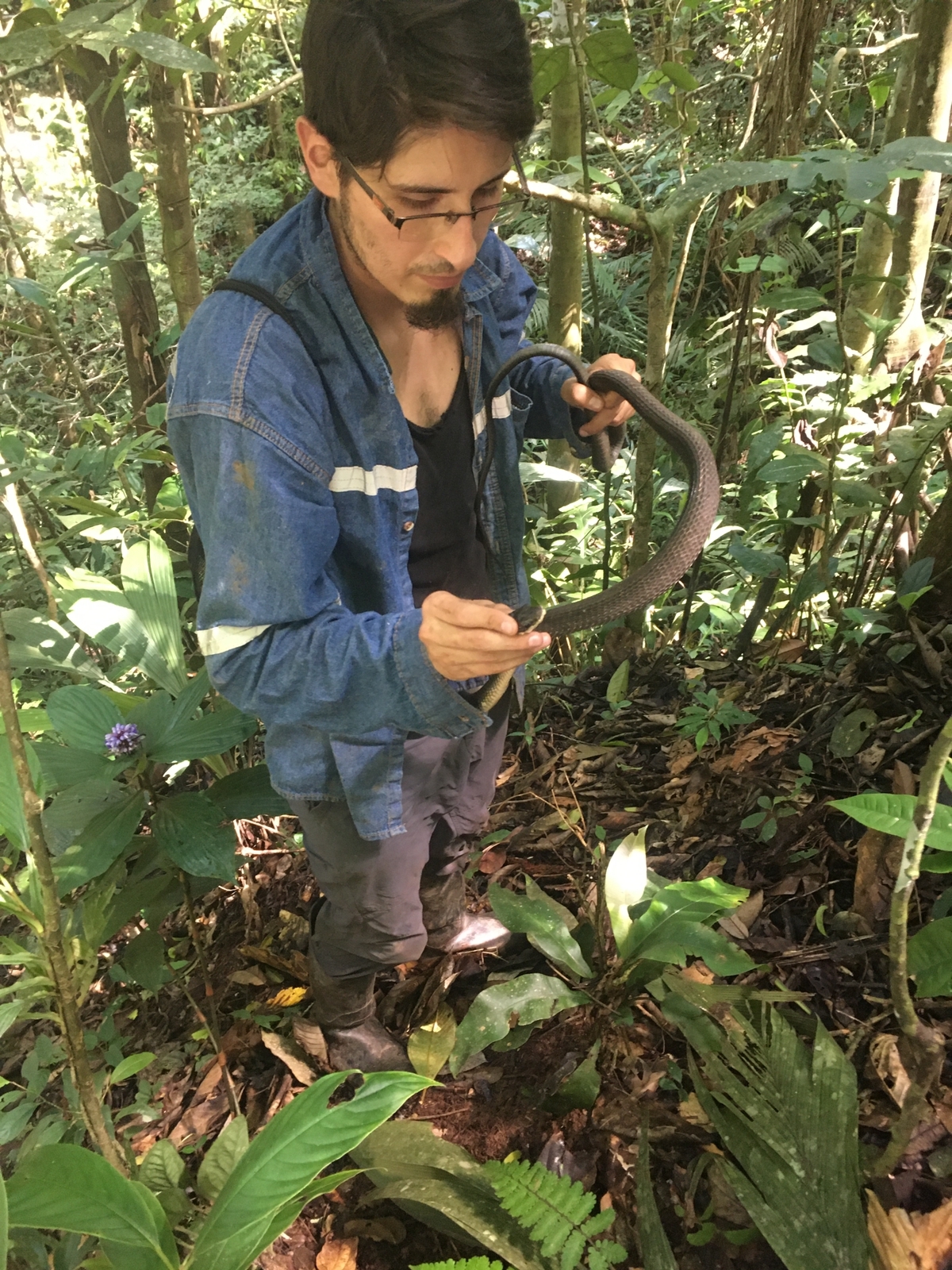
Mauricio Mejía
MSc in Biodiversity and Climate Change
Mauricio obtained his bachelor's degree in biological sciences in 2018. Before receiving his master's degree, he completed internships at the Laboratório de Toxinología Aplicada (LETA) at Instituto Butantan in Brazil. In 2022, Mauricio obtained his M.Sc. degree in biodiversity and climate change at Universidad Indoamérica. He has participated in snake systematics projects and has research experience in integrative taxonomy. He is currently working on the transcriptomic profile reconstruction of South American pitvipers venoms.
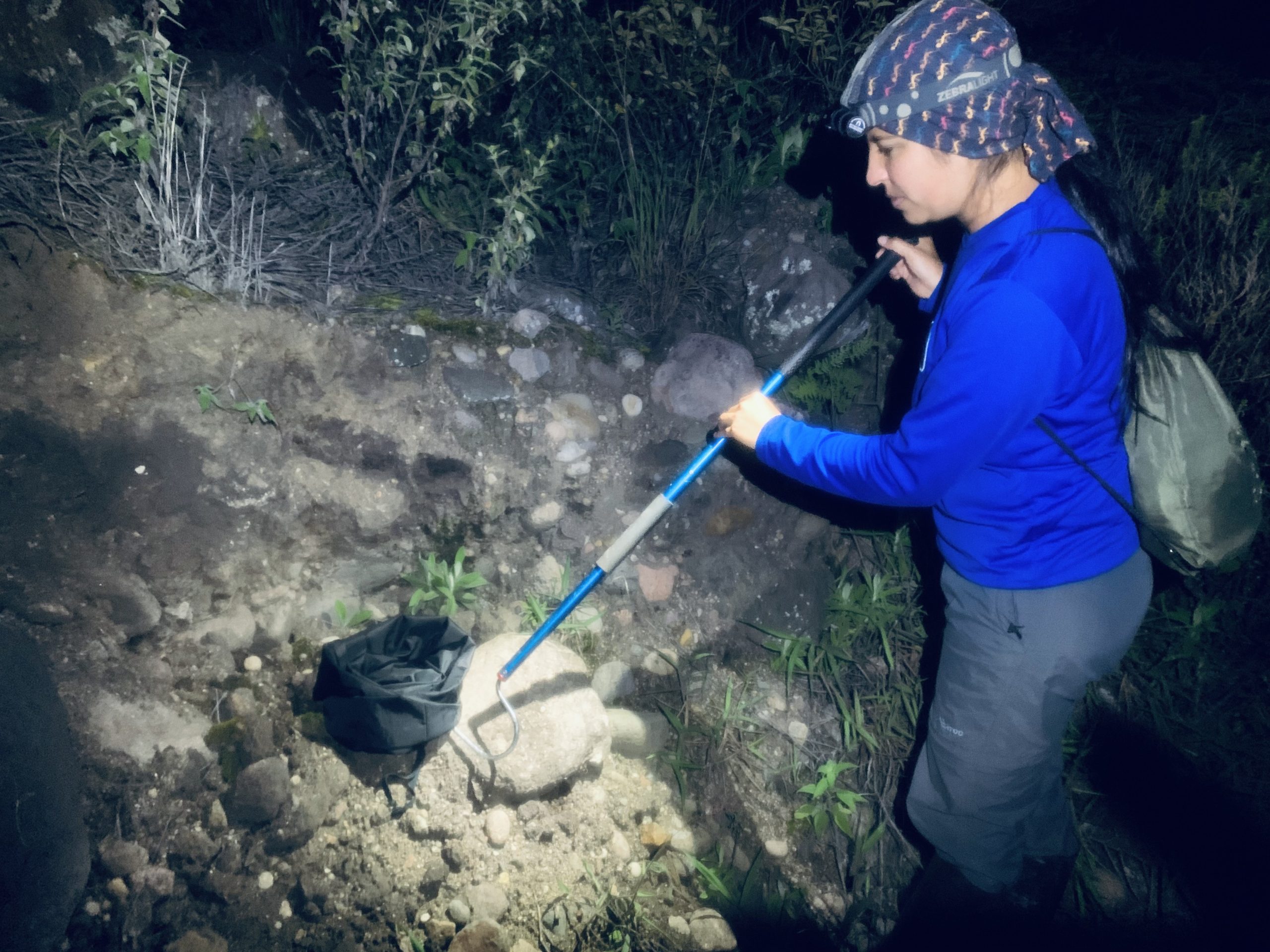
Kathya Bustamante
MSc in Biodiversity and Climate Change
Kathya is a biologist with an M.Sc. in Biodiversity and Climate Change at Universidad Indoamérica. She studied a marsupial frog's embryonic development and reproductive behavior as part of her bachelor's degree at Pontificia Universidad Católica del Ecuador. After she completed her bachelor's degree, she studied the human-snake conflict in two cantons from the coastal region of Ecuador through an analysis focused on public health and biological conservation. This project was part of her master's thesis and she is currently working on the continuation of this research. She is interested in studying wildlife with the inclusion of human and social components from a transdisciplinary view.
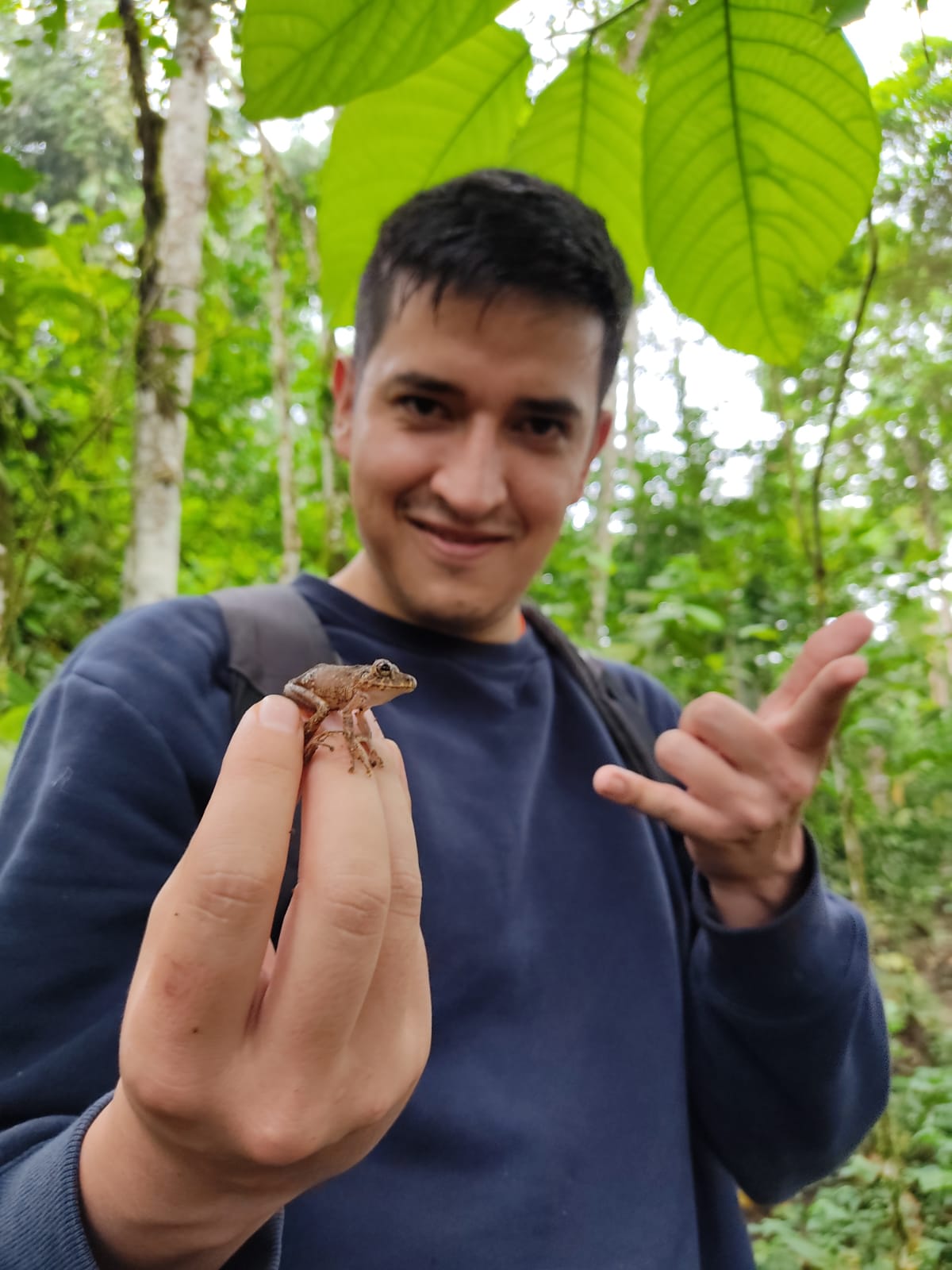
Jordi Rivera
Engineering in Biodiversity and Genetic Resources
Jordi Rivera-Albuja graduated in Biodiversity and Genetic Resources at Universidad Indoamérica. His undergraduate work consisted of a proposal for the study of the molecular mechanisms of resistance of cat-eyed snakes to poison frogs from the Dendrobatidae family. He currently works as a technician at UTI's Zoology Museum in the areas of Fishes and Invertebrates. In addition, he collaborates with the Neotropical Toxins Lab in different studies to understand the ecological and evolutionary patterns that shape predation interactions between neotropical snakes and toxic anurans.
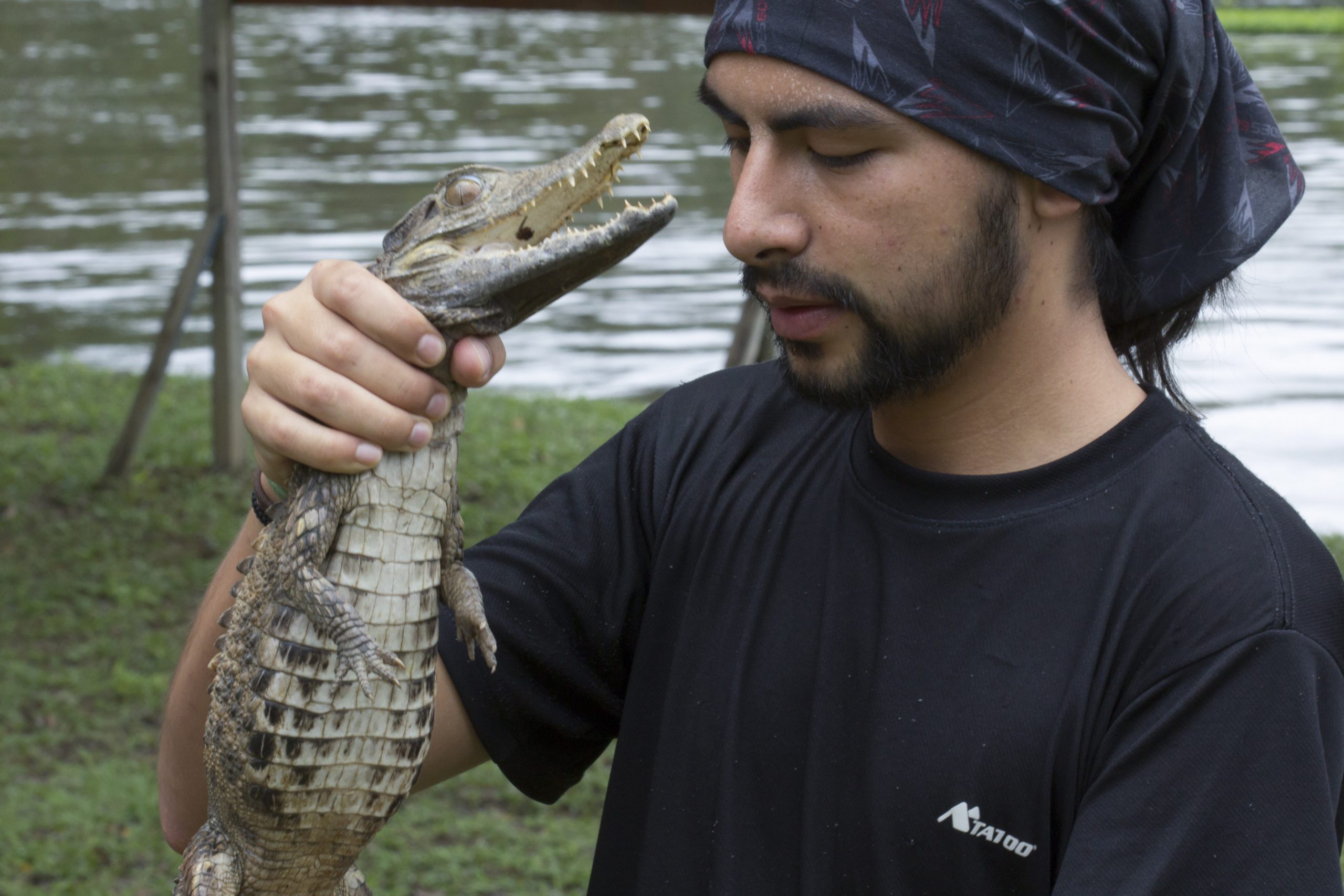
Diego R. Quirola
Previous Lab Manager
Diego is a biologist and wildlife photographer. He obtained his bachelor's degree in Biological Sciences from Pontificia Universidad Católica del Ecuador; currently, he is a PhD student at Clemson University. He worked with Pinocchio Anoles, which bear a prominent sexually dimorphic trait, and described the ornaments' possible use within intraspecific interactions. His main research interests are focused on evolution, behavior, ecology, biogeography, venomics, toxinology, and bioinformatics.
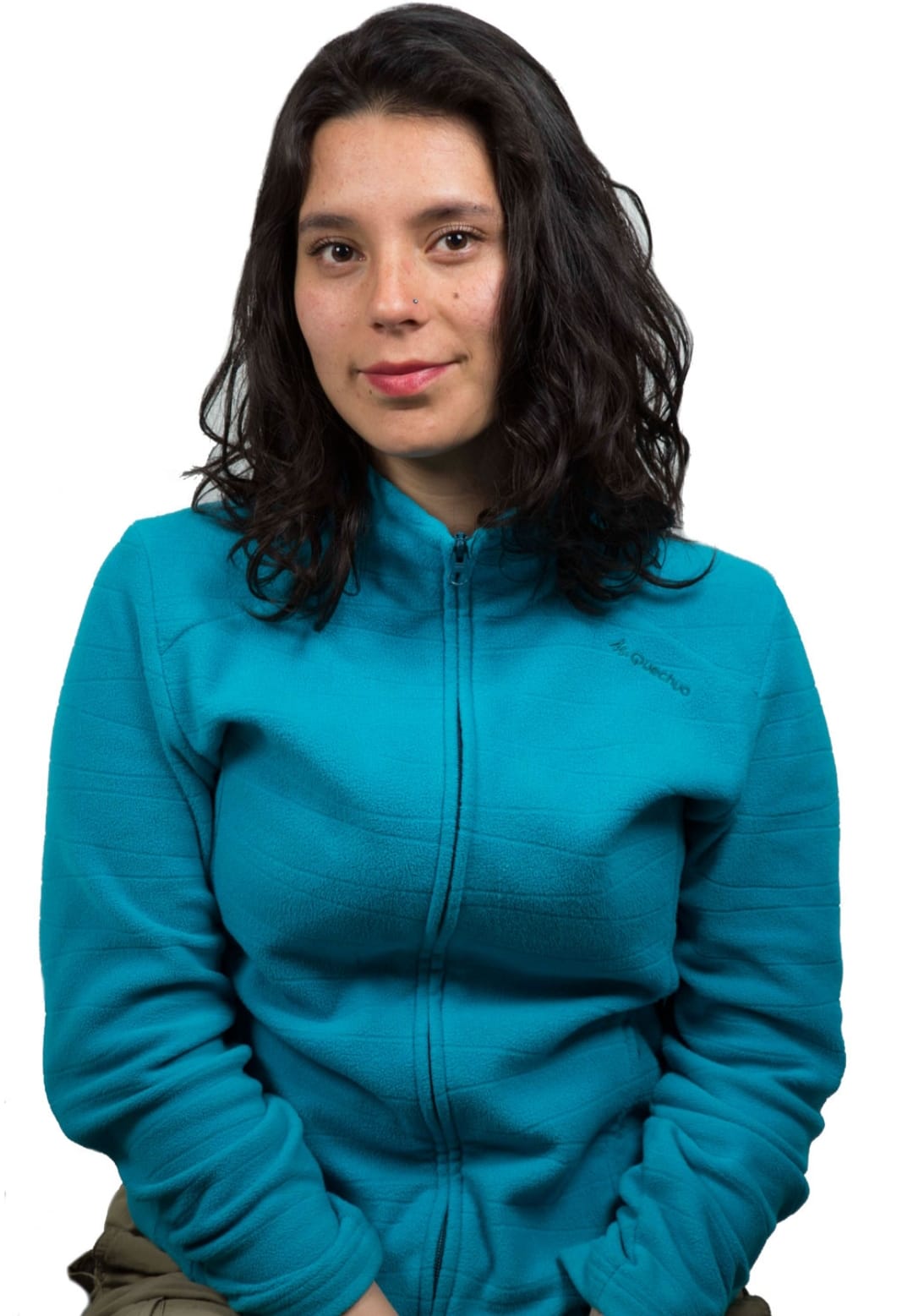
Katherin Hinojosa
Collaborator
Katherin got a bachelor's degree in Biological Sciences from Pontificia Universidad Católica del Ecuador. She worked with marsh snakes' complex of species from Ecuador at the phylogenetic and morphological level and she is currently working on the description of a new colubrid species for the country. Her academic interests are focused on the ecology and evolution of toxic animals, biogeography, toxinology, and conservation.
